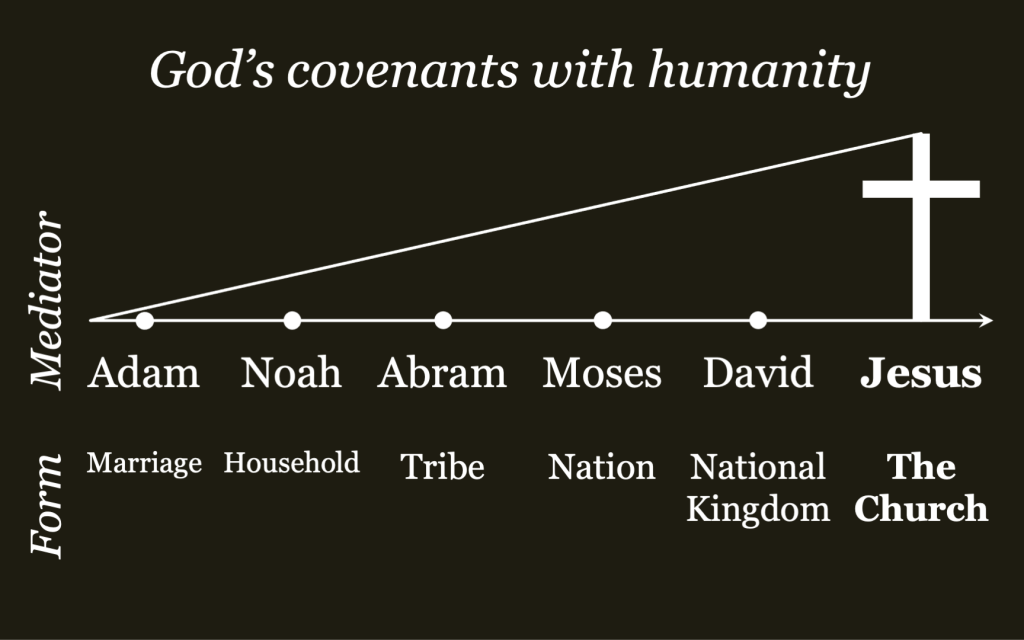Merry Christmas, everyone!
Two years ago, we talked about the principle of ‘beginning again,’ from Ven. Bruno Lanteri: We all need fresh beginnings, and God the Father always calls us to begin again.
Tonight, however, He’s calling us to give others a chance to begin again. This is important because sometimes we pigeonhole people in our minds. We might think, for instance, ‘Dad is so distant, Mom always nags.’ That could very well be true, but give them a chance to begin again. We’re probably going to see relatives this Christmas, and we know their faults (who’s boring, who’s draining, the one who doesn’t care, the one who is obnoxious). When we think of people here in church, we know some of the faults of each other. However, since God always gives us more chances, and since we’re not the same people we were since we last saw each other, let’s give each other a chance to improve.
When we look at the Gospel for Christmas Day, it says, “In the beginning was the Word, and the Word was with God, and the Word was God” (Jn 1:1). ‘In the beginning’ are the same first words in the book of Genesis, when God creates the universe, so, when St. John uses these words, all Jewish readers knew that he was referring to a new creation in Jesus, the Word of God Whom the Father speaks to humanity.
That’s Who God is: He’s the God of fresh beginnings. Even though most of humanity always rejects Him, He keeps on giving us new opportunities. This famous chart shows God’s covenants with humanity in the Bible.
A covenant is like a marriage. In the case of this chart, God loves us so much that He makes a covenant with Adam, but he and Eve break it. So, God tries again with Noah, who’s faithful and then unfaithful. He then calls Abraham, who has faith(!), but then he, too, doesn’t trust fully. Moses is said to be the most humble on the face of the earth, but then he complains against God. David, at first, follows God’s heart, but then becomes lazy and commits murder and adultery. And so does everyone else who was in the genealogy we just heard in the Gospel. Do you know what that’s like? To be always disappointed with the people you love? So, He sends His only Son to be one of us. Only He and His mother, Mary, are completely faithful.
God continues giving us chances. Every day that we live, we have another chance to grow closer to Him. Therefore, we should extend these same opportunities to others.
In the Gospel for tomorrow, it says, “No one has ever seen God. It is God the only-begotten Son, who is close to the Father’s heart, who has made him known” (Jn 1:18). The text reveals a reality called ‘The mediation of another’s eyes’ (Fr. Jacques Philippe, Interior Freedom, 35-36). All of us have difficulty accepting ourselves: We suffer from pride, failure, hurt, and the fear of not being loved. We can’t see our own goodness, the goodness that God sees. We need someone else to mediate His love.
Have you ever known a woman who doesn’t think she’s beautiful? I’ve seen this scenario a number of times: There’s a woman who’s objectively beautiful but she doesn’t think so. Yet, over time, she meets people who treat her with great respect and affection, and perhaps a man falls in love with her and cherishes her, and, with that repeated affirmation of the truth that she is beautiful, she comes to know what God knows. They mediate His love.
Jesus Christ, Who “is the reflection of God’s glory and the exact imprint of God’s very being” (Heb 1:3), or, as this text says, ‘is close to the Father’s heart,’ has mediated the Father’s love for us. When we encounter Jesus in a personal way, and see how much He suffered for us, then we know God’s love for us. God says through the prophet Isaiah , “You are precious in my eyes, and honoured, and I love you” (43:4).
Could we look at people like that? Without cynicism, but with hope, where we’re open to being surprised to find that people grow?
Now, this doesn’t mean that we pretend everything is perfect in our relationships. If it’s a serious situation and someone’s safety is involved, sometimes beginning again means having the courage to separate ourselves from the person who’s hurting us.
And this is why God expects us to go to Confession before Communion. He says, “Not everything is perfect between us. But, I want it to be; I still love you, bless you, and have no ill-will towards you, but let’s do things properly. Let’s begin again.”
So, in average relationships where there’s sin and hurt, what we’re talking about fundamentally is having good will, and not dwelling on the pain of the past. After that, each of us must discern how our behaviour should change. Don’t act weirdly, like giving people a hug to someone we never hug. With certain people it may be time to tell them that we want a fresh start—if so, praise God! Nevertheless, for others, being too friendly may cause more discomfort, so don’t change the way you act, just focus in your heart on giving that other person a chance to change.
When we look at an image of the baby Jesus, we see the gentleness of God towards us. When we see our Mother Mary holding Him, we see how she prays for all of us and our relationships.
God gives us a chance every moment to begin again, so, by His grace, let’s give others the same gift. Merry Christmas!


